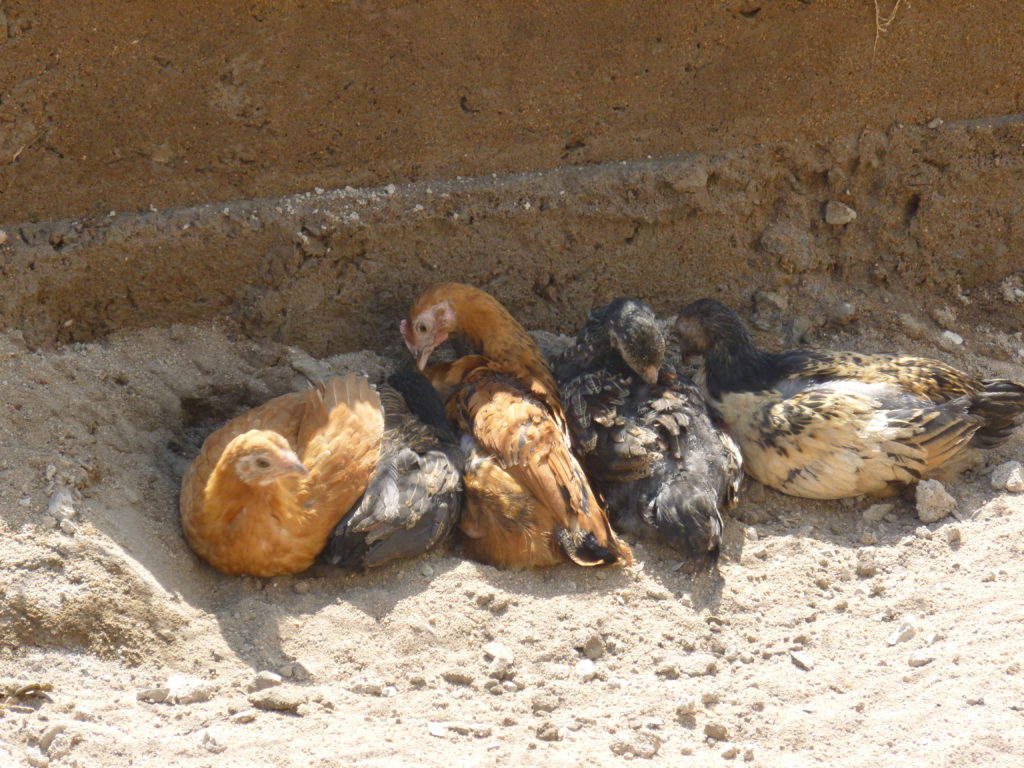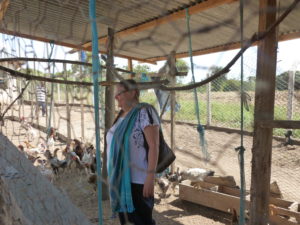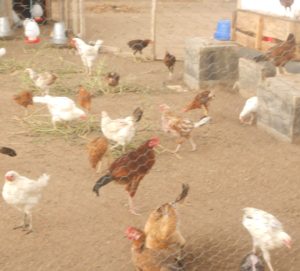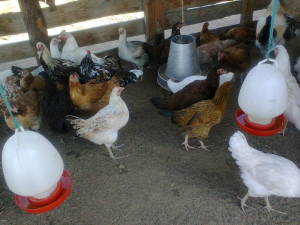The Nutrition Project
We are pleased to report that the project continues to go well. It has exceeded expectations with low hen mortality. There is continuing local advice and the government veterinary service vaccinates the hens. We have gained some information on a breed of hen developed in Malawi; it is hardy, has higher body weight and greater egg production. We will explore the possibility of introducing this breed to our flock.
The other main development affecting the hens is the completion of the centre’s security fence. This has increased the area for the hens to roam. Our Project Leader Rev Deuli summed it up; the hens are happier now as they have more space to play!

The Hen Project makes an important contribution to the health and wellbeing of the children. This is the product of Busega Scotland’s efforts, the generosity of our principal Hen Project donor ( Sheila McLarnon’s chiropody clinic in Cumbria) and the commitment of the orphanage’s staff. When everyone works together anything is possible.


The New Peace Mayega Children’s Dropping Centre Nutrition Project , November 2014 The New Peace Dropping Centre cares for approximately 25 orphaned and destitute children in the Busega District of Tanzania. The children live about 10 miles from the entrance to the world famous Serengeti National Park. Tanzania has over 1.2 million orphans, mostly due to the impact of Aids/HIV. BCDSA TZ, a non- governmental, not for profit organisation, registered with the Tanzanian government, responded 10 years ago in setting up an orphanage. The children were moved from a dilapidated building to a new build dormitory two years ago. The centre provides basic accommodation and has no water or mains electricity. Water is mostly drawn by buckets from Lake Victoria and carried back to the centre. In the rainy season water is collected from the roof guttering into a large tank. Construction continues on site when funds are available. Tanzania is ranked as the 14th poorest country in the world and from the start there have been problems raising enough money to feed the children at the orphanage. They were surviving on a very basic diet of rice or maize meal, beans and green vegetables, with very little variation. Meat was only eaten on special occasions and fish was purchased when money was available. During 2014 international support has concentrated on providing food security for the children, including bulk purchases of staple foods. On 21st May 2014 our nutrition project was launched with a “Hens for Mayega Appeal”. BCDSA TZ supporters started selling hen post cards in the UK to raise funds. The idea was to improve the children’s diet by keeping hens to produce eggs. Our appeal was for funds to convert an old byre into a hen house and to purchase all the equipment, chicken feed and the hens themselves Once fully established, it is hoped that sufficient eggs will be produced to create a surplus that can be sold in the local community, to provide food and some income. This will be used to keep the supply of chicken feed etc. going and allow the project to become self-sustaining. Meanwhile the project is funded on a monthly basis through donations. The first hens were purchased in June. The hens are flourishing and we have added to the original group three times now and have 41 hens in total. Buying the hens over a 3 month period allows the staff and children to build up expertise in caring for them and will mean that the hens will be different ages. This is important to keep the supply of eggs going when the first group become too old to lay eggs.
The children now have eggs to eat as the first group purchased are producing eggs. Eventually, the hens will be completely free range within the centre’s planned perimeter security fence, however we are still looking for £3000 funding to construct the fence. Meanwhile the hens appear relatively safe from theft, snakes and kites. These large, very common, birds of prey would find a well fed hen a tasty snack. The staff at Mayega report that the children are very happy with the new addition to their diet and they are all involved with a rota in place covering feeding and cleaning the hen house. As the numbers of hens have grown we have extended the outdoor area and added more wooden nesting boxes to keep the ladies comfortable. We purchased village hens which are more resistant to disease than the higher yielding special breeds. The birds are regularly vaccinated and this saved them when the local wild population in the community was decimated recently. As well as providing eggs, the hen project is teaching the children new skills and giving them a focus. By caring for the hens they are learning to feed themselves. This project needs about £50 per month to keep it going.

![DSCN0878[1]](https://busegascotland.co.uk/wp-content/uploads/2014/11/DSCN08781-150x150.jpg)

